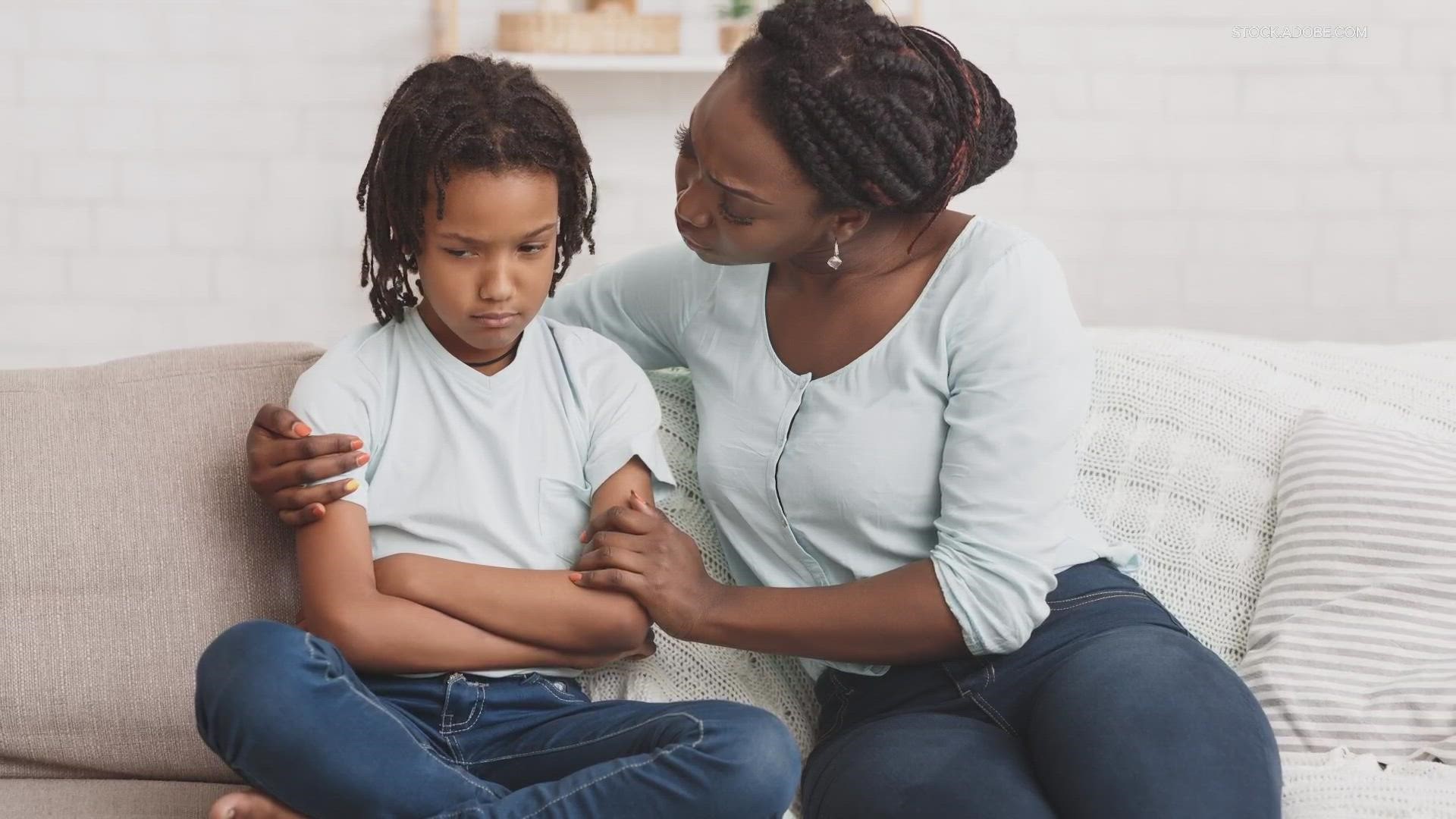GREENWOOD, Ind. — I’m sure we have all seen the scenario before where a child is having a fit and throws something or says unkind words to a person, then their parent immediately says, “You tell them you are sorry right now!”
Our 13News Education Expert Jennifer Brinker from Greenwood Middle School warns against that reaction from parents.
Gina Glaros - 13News: So why is it a bad idea to make your child apologize if they did something wrong?
Mrs. Brinker: I am a big believer that apologies cannot be genuine if they are forced. What we are teaching when we do something like this is that you say you are sorry to get out of trouble. It doesn’t mean anything to the child, so you have to connect it to actual meaning. I bet you that most adults have gotten into this habit, as well, where we apologize without meaning it, which is definitely not a good thing.
Gina Glaros - 13News: So this might sound like a silly question, but what do you tell a child that “I’m sorry” really means?
Mrs. Brinker: Well, if you are truly sorry, that means two things. 1. I wish I had not just done that and, this next part is the most important, 2. I’m going to do everything in my power to make sure that doesn’t happen again. If a person doesn’t mean both of these things, they should definitely not say it. We don’t want to teach our children to express emotions that they don’t actually have.
Gina Glaros - 13News: As vice principal at Greenwood Middle School, you deal with kids being unkind at times. What does that look like when a student comes in your office?
Mrs. Brinker: Well, it is important to explain to kids, no matter the age, why what they did was wrong and what negative impact it had. This was no different when I taught elementary school kids than now with my middle schoolers. They have to know why it was hurtful to another person. Once I know they understand and make this connection, I focus more on the questions, “How do we make this right?” That sometimes leads to students saying they need to apologize and then we have the conversations about those two components of an apology and if they are truly sorry, then I can help facilitate that apology.
Gina Glaros - 13News: Any final advice?
Mrs. Brinker: I say this all the time, your kids are always watching you. If they see you give insincere apologies, they will do the same. If you make a mistake, because we all do, you need to apologize. It is often much harder for adults than kids. Most important, they need to see you try to make it right if you have said or done something hurtful, especially to them.

